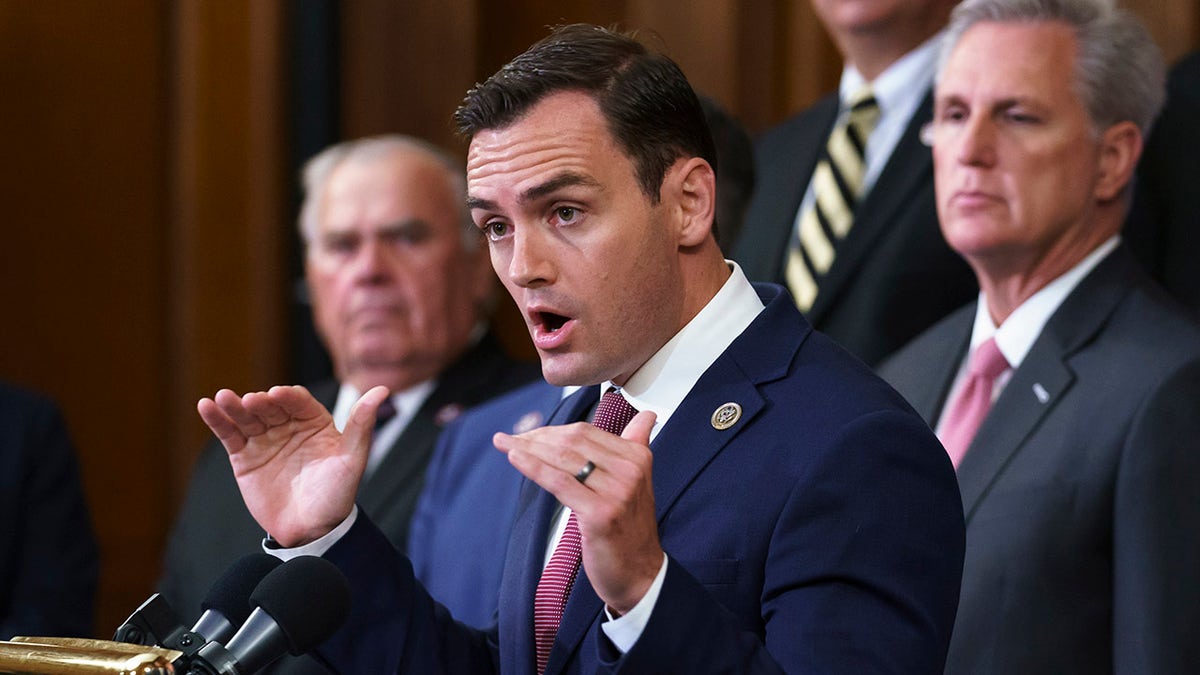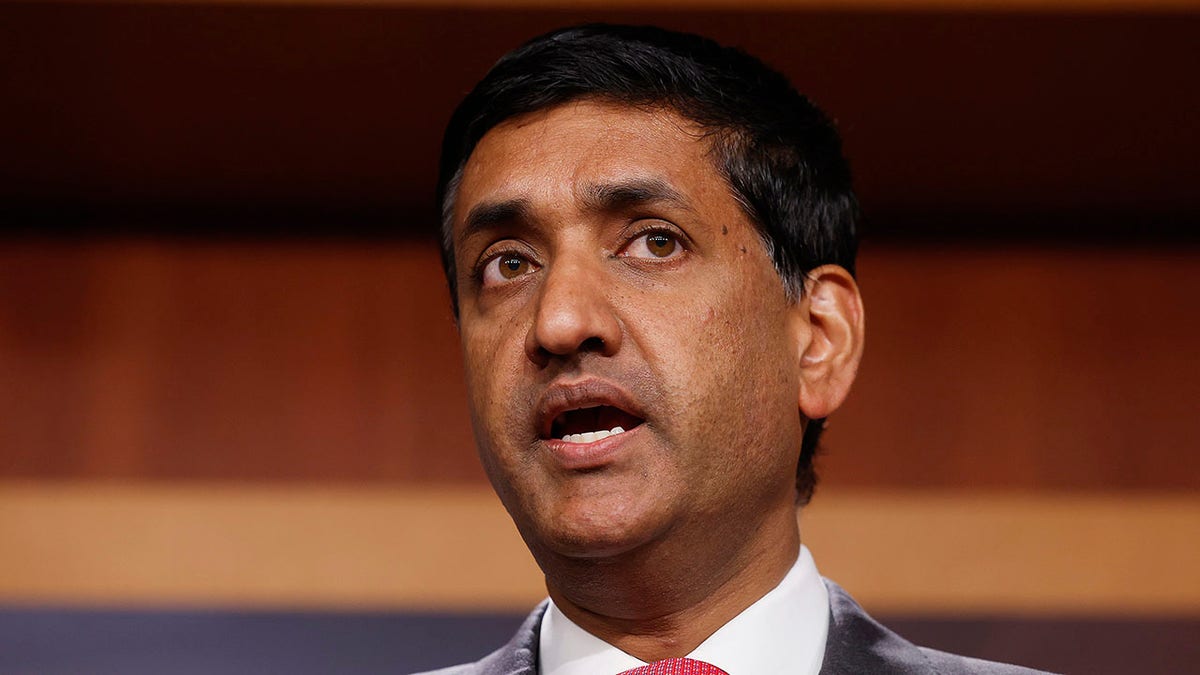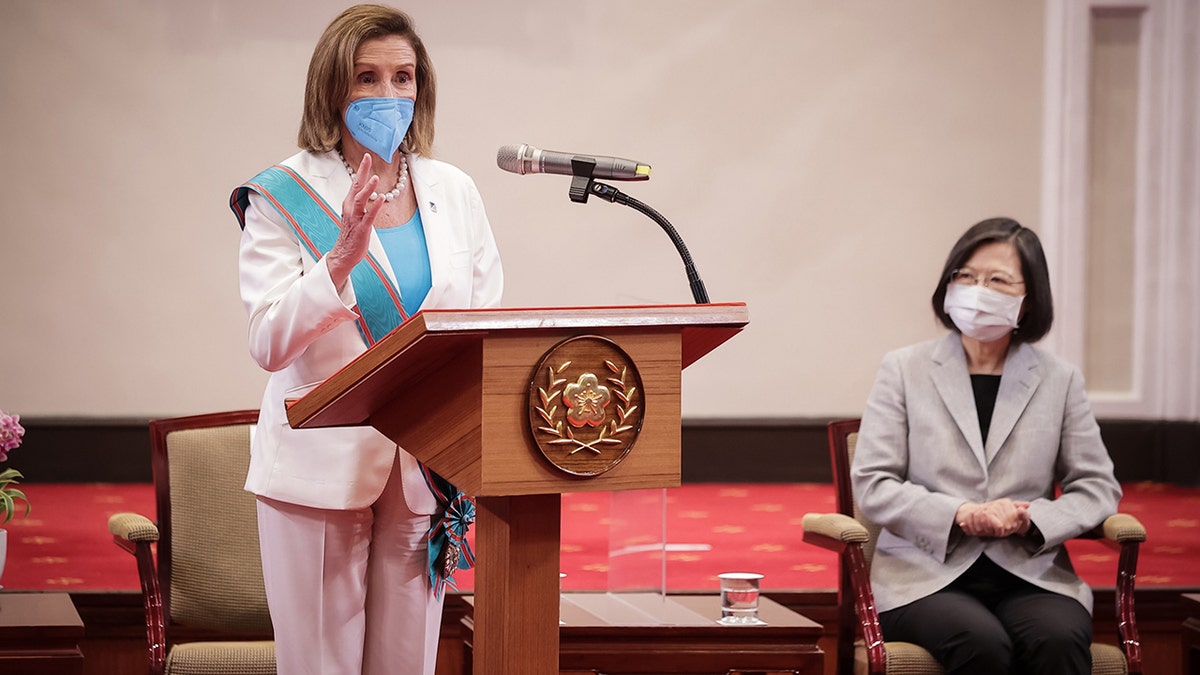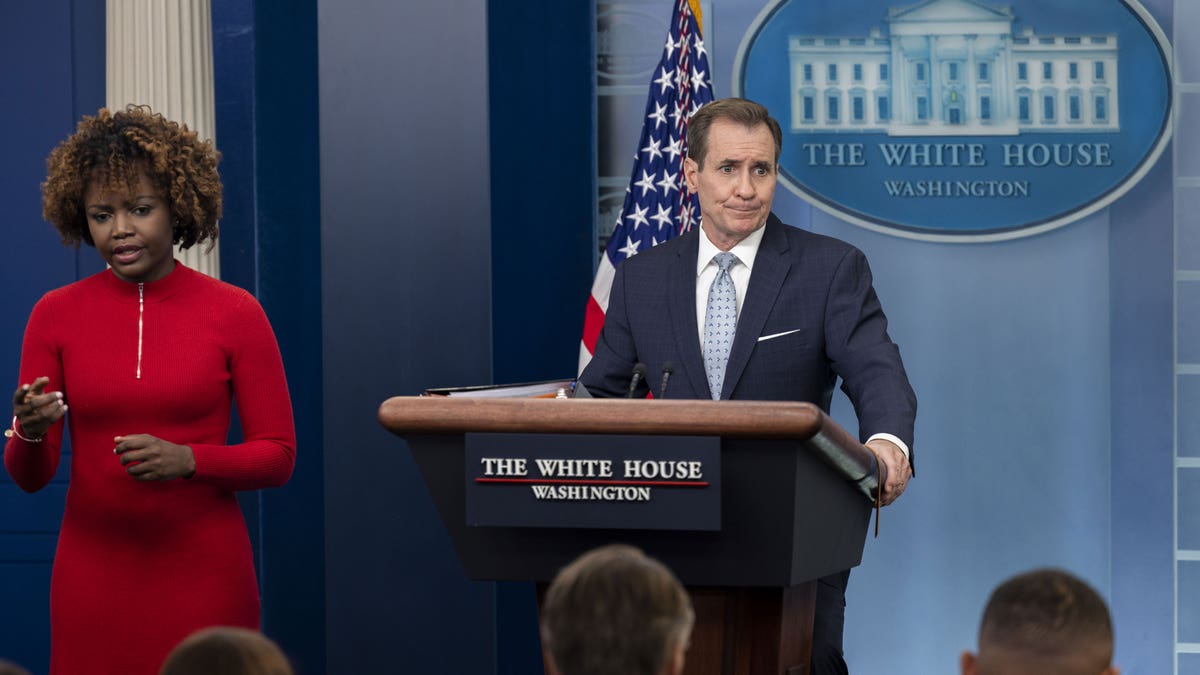Gallagher: Time to arm Taiwan was yesterday
Wisconsin Republican Rep. Mike Gallagher explains Russia and China's threat to the world on "The Story."
Republicans and Democrats on the House China Select Committee believe that sending congressional delegations to Taiwan could "improve the chances of peace" in the Taiwan Strait and said that Taiwanese officials welcome their visits, despite challenges they create with China.
China Select Committee Chairman Mike Gallagher, R-Wis., and Ranking Member Ro Khanna, D-Calif., recently traveled to Taiwan in an effort to strengthen ties.
Speaking to reporters this week, the lawmakers said the U.S. needs to prove it is "willing to deliver" as Taiwan grapples with threats from Beijing.

Rep. Mike Gallagher, R-Wis., and his Democrat counterparts on the House China Committee signaled that they won't stop visiting Taiwan. (AP Photo / J. Scott Applewhite / File)
Last week, White House National Security Council Director of Strategic Communications John Kirby said communications between the United States and Chinese militaries "unfortunately" remain closed.
CHINA SHARPLY CRITICIZES PENTAGON AFTER DEFENSE OFFICIAL VISITED TAIWAN
China shut down communications with the United States military after then-Speaker Nancy Pelosi visited Taiwan last year. That visit prompted increased aggression by China in the South China Sea and led experts to predict a Chinese invasion of Taiwan by 2024.
But Gallagher and Khanna both said congressional visits to Taiwan could be helpful in deterring China’s ambitions for Taiwan.
"I think it enhances the partnership between the United States and Taiwan and thereby improves the chance that peace will be preserved across the strait," Gallagher said. "I understand that the Chinese Communist Party and the PLA throw a fit every time someone visits."

Rep. Ro Khanna, D-Calif., traveled to Taiwan with Gallagher. (Chip Somodevilla / Getty Images / File)
Gallagher and Khanna's visit coincided with Deputy Assistant Secretary of Defense for China Michael Chase's trip to Taiwan, which prompted sharp criticism from the Chinese Foreign Office. The visits came amid Chinese military movements in the Pacific Ocean and the East China Sea.
China’s Taiwan Affairs Office spokesperson Zhu Fenglian accused the U.S. and Taiwan's ruling Democratic Progressive Party of attempting to push the island’s independence from China and discouraged the alleged efforts.
China "resolutely opposes any official interaction and military collaboration" between the two countries, Zhu said Wednesday, further underscoring tensions between Beijing and Washington over Taiwan.
Gallagher acknowledged that China "responded in a more dramatic fashion when Speaker Pelosi visited" but said he supported her visit.

Then-House Speaker Nancy Pelosi, D-Calif., visited Taiwan last year. (Chien Chih-Hung / Office of The President via Getty Images / File)
"I think it is entirely consistent with the Taiwan Relations Act as well as more recent legislation that explicitly calls for enhanced exchanges between our legislatures," he said. "I think the more that our colleagues in Congress visit, they see Taiwan, the better they can understand these issues and the more we send the signal that support for Taiwan against an attempt to upend the status quo by an authoritarian power is a bipartisan issue."
US SENDING UP TO 200 MORE TROOPS TO TAIWAN AS CHINA TENSIONS GROW
Khanna agreed, stressing the bipartisan nature of the issue and acknowledging the heightened tensions between China and Taiwan during the U.S. visits.
"Taiwan understands that, at times, these delegations that are coming can create some challenge, but they said that is preparation for them," Khanna said. "They welcome them, and they don’t view them as a burden."
Khanna said it is important that members of Congress do "not get in front of their skis and not get out ahead of Taiwan itself" with regard to policymaking.
"I would encourage [members] to deal with all parties but listen carefully to how Taiwan is framing the issues," Khanna said.
He added, "I think if members drill down and engage and go there to listen … I think it can be helpful."
The White House National Security Council did not immediately respond to Fox News' request for comment on whether congressional delegations should be making the trip to Taiwan amid heightened tensions with China.
Officials and lawmakers have warned that it's only a matter of time before China tries to invade Taiwan, with some arguing that the 2024 U.S. presidential election and the Taiwanese election might have influence on the timing of China’s aggression toward Taiwan.
CHINA COULD INVADE TAIWAN BEFORE THE 2024 US PRESIDENTIAL ELECTION: SOURCES
Taiwan split from China in 1949 after a civil war. Mainland China does not recognize Taiwan independence and wants it to unite with the mainland.

National Security Council Coordinator John Kirby speaks at a White House press briefing. (Nathan Posner / Anadolu Agency via Getty Images / File)
Fox News reported last summer that China could invade Taiwan within 18 months, according to current and former officials familiar with U.S. and allied intelligence – specifically through amphibious military assault landings.
Defense Secretary Lloyd Austin recently said that there has been "increased surface vessel activity around Taiwan" but "whether or not that means an invasion is imminent … I seriously doubt that."
CLICK HERE TO GET THE FOX NEWS APP
Meanwhile, the U.S. is preparing to send 100 to 200 troops to Taiwan for training amid rising tensions with China, a U.S. official familiar with the planning confirmed to Fox News on Thursday.
This number will expand a much smaller training program that has included the National Guard, Special Ops and Marines.
The Michigan National Guard will also train a contingent of the Taiwanese army, including some training as part of larger exercises, on U.S. soil.







